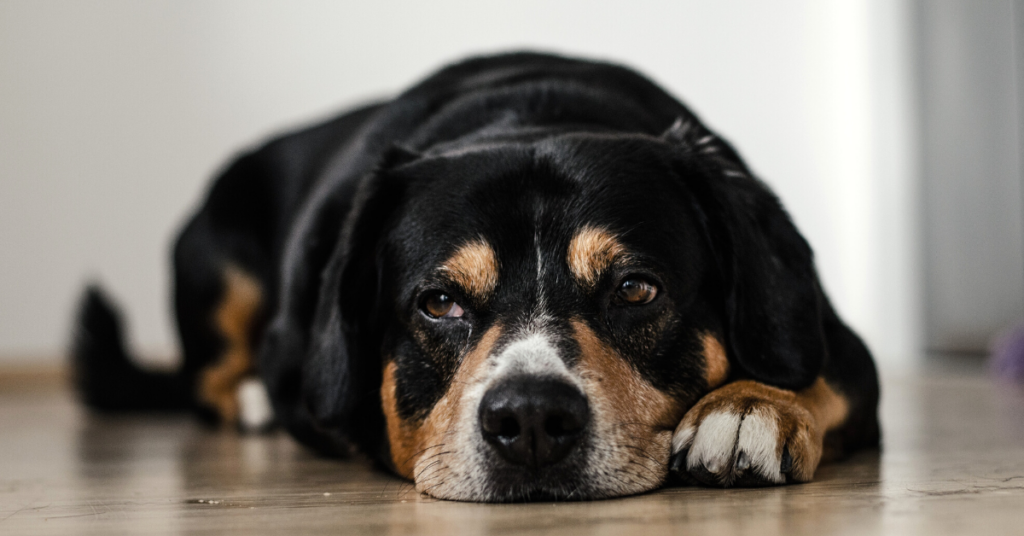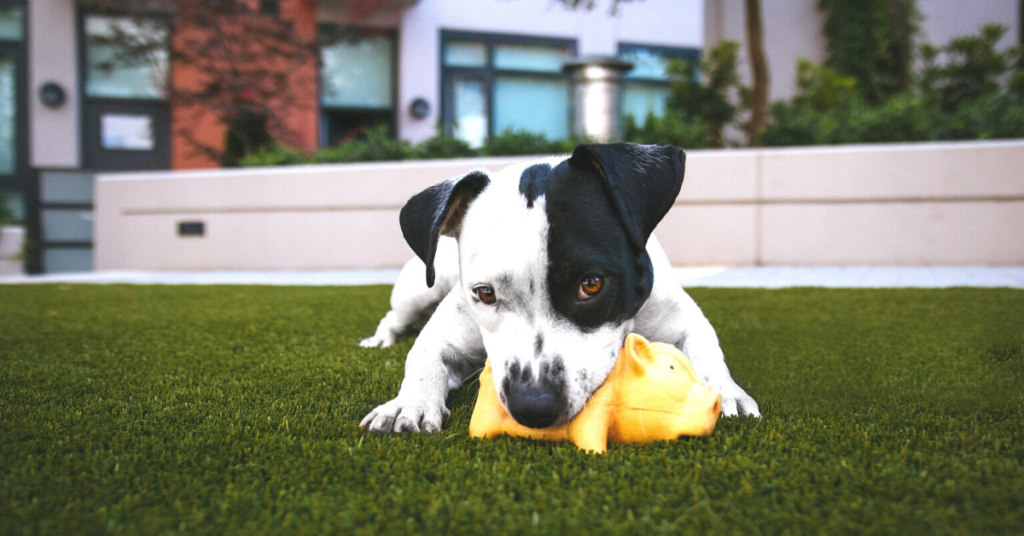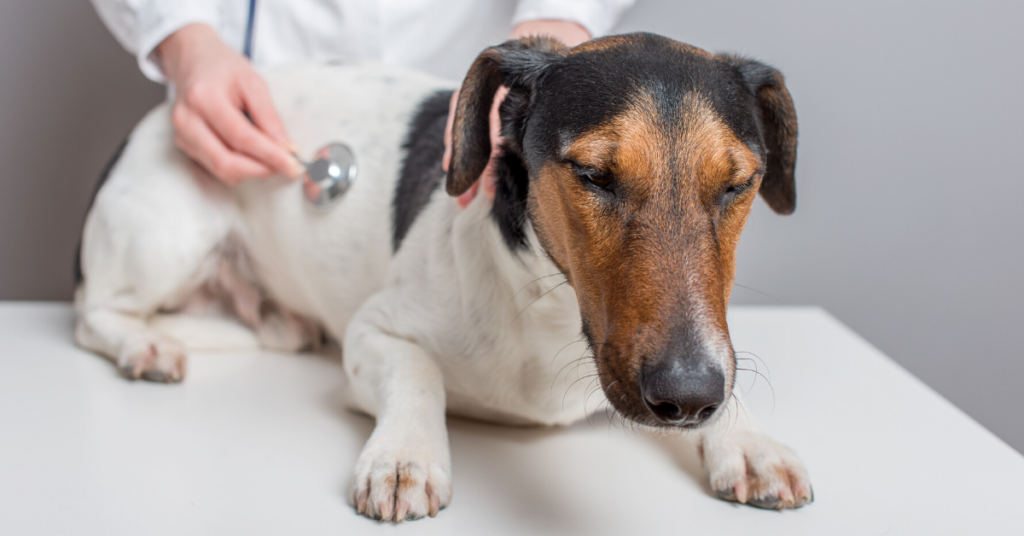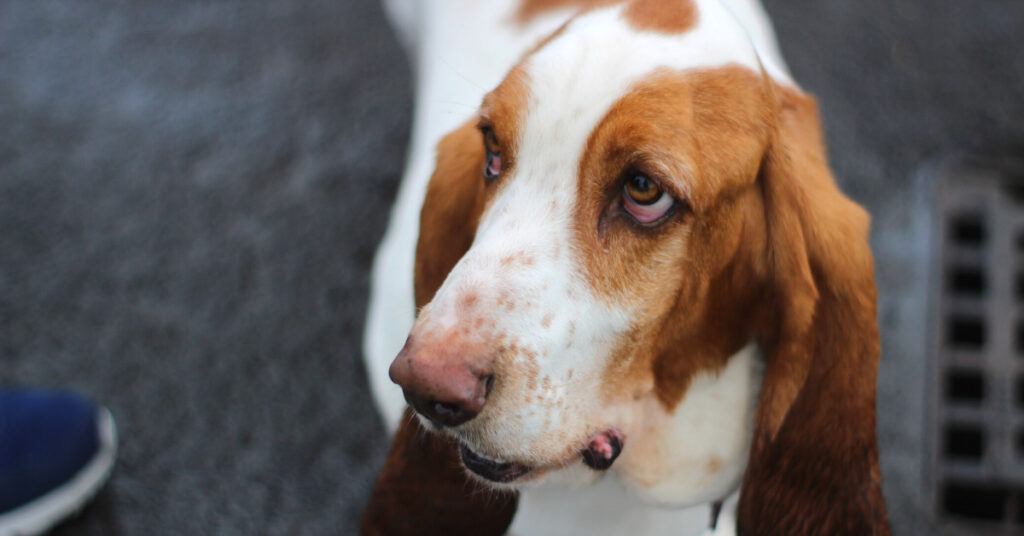My Dog Ate Rat Poison: What To Do
If your dog ate rat poison, you should seek immediate veterinary care.
Ingestion of rat poison in dogs is very common and can be deadly.
Rat poison also known as rodenticides contain chemicals that are very poisonous to dogs and, if consumed by your dog, can result in internal bleeding, renal failure, and even death.
Alarmingly, many new rodenticides have a pleasant flavor to attract animals and may appear to your dog as a tempting treat.
Let’s find out what to do if you think your dog ate rat poison…
What is Rat Poison?

There are various types of rat poison, and each one behaves differently depending on the deadly chemical it contains.
Anticoagulant rodenticides are the most popular type in the UK, as they prevent blood from clotting, resulting in internal bleeding.
Other types contain cholecalciferol (vitamin D3), which causes severe, sudden renal failure.
Bromethalin can cause brain swelling, and zinc and aluminum phosphides, which cause phosphine gas to be released once in the stomach.
The majority of rodenticides contain a grain or sugar basis, which makes them appealing to rats as well as dogs, cats, and other animals.
They are usually available in the form of pellets, blocks, granules, or liquids, and it can come in any color, but the most common colors are teal, blue, green, and pink.
If you suspect your dog has ingested rat poison, go to the vet immediately with a box of the type of poison that your dog ingested; because treatment is dependent on the type of poison.
Signs of Rat Poisoning in Dogs

Each type of rodenticide has different toxic effect and treatment:
Anticoagulants
This is the most common type of rat poison ingested by dogs. They include products with an active ingredient such as brodifacoum, bromadiolone, chlorophacinone, diphacinone, warfarin, or another chemical.
They cause death by interfering with the body’s capacity to recycle vitamin K, which is required for blood clotting.
Affected dogs may require a vitamin K1 injection, and weeks or months of vitamin K1 pills, which is not the same vitamin K found at pharmacies, in order to regain the dog’s ability to clot blood.
If your dog ingested this type of poison, it may take 2 to 7 days for symptoms to show.
Symptoms include:
- Bleeding from nose, eyes, or ears
- Pale or white gums
- Presence of blood in urine and/or feces
- Skin bruising
- Weakness
- Lethargy
- Loss of appetite
Cholecalciferol
This toxin raises calcium levels in the body to dangerously high levels. When this toxin is eaten, it can cause acute kidney failure, and heart issues.
Acute kidney failure will occur three to four days following ingestion, and signs may not appear for 12 to 36 hours.
Symptoms include:
- Foul breath
- Blood in stool
- Diarrhea
- Dehydration
- Drooling
- Excessive or insufficient thirst and urination
- Seizures
- Tremors
- Lack of energy
- Pain in stomach
Bromethalin
This toxin causes sodium buildup in cells, causing the cells to expand and die when exposed to water. It has an impact on the central nervous system including the brain, spine, and nerves.
If your dog ate a small amount of Bromethalin, symptoms will show up over 1 to 2 weeks. However, if a large amount is eaten, symptoms will appear within 2 to 24 hours and fatality occurs quickly.
Symptoms include:
- Lack of appetite
- Thirst
- Head pressing against furniture
- Weak mobility
- Paralysis of hind limb
- Tremors and seizures
Zinc phosphide and strychnine
This toxin is only available to pest removal professionals. However, if eaten, it creates a toxic gas called phosphine inside your dog’s stomach.
If your dog has food in it’s stomach, signs will show in less than one hour, and up to twelve hours after on an empty stomach.
Symptoms include:
- Nausea
- Breathing difficulty
- Diarrhea
- Appetite loss
- Tremors and seizures
- Paralysis
What to Do if a Dog Eats Rat Poison?

If you suspect that your dog has eaten rat poison, call your vet immediately, or the 24/7 Animal Poison Control Center. This is an emergency that can’t wait.
Your veterinarian will need as much information as possible to identify the type of toxin and choose the best treatment plan.
Take the rodenticide box with you if available or a sample of the poison ingested.
Write down information that will help your vet like, the amount of poison you think your dog ate, how much time passed after ingestion, and your dog’s weight.
Treatment of Rat Poison Ingestion in Dogs

Treatment of eating rat poison is determined by a number of factors, including the type of poison eaten, the volume eaten, and the length of time after ingestion.
After a physical examination by the vet, they will be able to determine the appropriate course of treatment.
If the ingesting was recent enough, the veterinarian will induce vomiting first. After that, the vet may prescribe activated charcoal orally.
Toxins are not absorbed via the gastrointestinal system when activated charcoal is used. In addition, your vet may need to do diagnostic tests to look for toxicity signs in the blood.
In some cases, your dog may need hospitalization for advanced testing and treatments.
When to See a Veterinarian

If you suspect your dog ate rat poison, or is showing signs of rat toxicity as mentioned earlier, take your dog to the nearest emergency vet clinic.
The prognosis is determined on the type of chemical in the rat poison, the volume consumed, and the time after ingestion.
Unfortunately, if the dog is displaying advanced signs of poisoning, the prognosis is usually bad.







